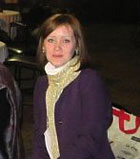Journal of Economics and Development Studies, 1(1), pp. 01-09.
Abstract
Changes in industrial production processes and consumption patterns have meant a substantial increase in waste generation, however, for countries wanting on the far side easy producing and that are turning to the adoption of latest styles of industries, it's the inner regions, the zones of transitions that begins with the sting of residual inexperienced area and also the fringe areas creating up the hinterlands between urban and rural areas that provide a chance for just growth and instead of simply co-existing, these firms might become an Eco-Industrial Cluster (EIC). Addressing these problems can accelerate the event of latest eco-industries and check that that new industries develop during a lot of eco-friendly approach compared to the past are under consideration in the following article.
Full Text: PDF
Nurutdinova, R. Aida. (2013). Sustainable Development Issues in Asia: Prospective for Eco-Town Concepts (4 Prototypes). Journal of Economics and Development Studies, 1(1), pp. 01-09.
Anbumozhi V (2007). An Assessment of Inter-firm Networks in a Wood Industrial Cluster: Lessons for Integrated Policy Planning, Journal of Regional Planning, pp 166-173. Eco-towns in Japan. Implications and Lessons for Developing Countries and Cities, Global Environmental Centre, Japan. pp. 84.
GEC (2005). Eco-towns in Japan - Implications and Lessons for Developing Countries and Cities, Global Environmental Centre, Japan pp. 84.
IGES (2006). Eco-Industrial Clusters Leading to Sustainable Local Development, Proceeding of the International Workshop on Business and Environment, Institute for Global Environmental Strategies - Kansai Research Centre, 26 October pp. 126.
IGES (2007). Eco-industrial Clusters in Urban Rural Fringe Areas, Institute for Global Environmental Strategies, Japan pp. 251.
Kuchiki A, M Tsuji (2005). Industrial Clusters in Asia – Analysis: Competition and Cooperation, Institute of Developing Economies, pp 330.
Nurutdinova A.R. The comparative analyses in development of regional, national science and innovation systems in East Asia (South Korea, China, Taiwan, Singapore, India and Japan). – Manuscript, pp. 350
Nurutdinova A. R. Future Research of Science Parks and Incubators: overall analyses //http://ijournalas. com/issues/12012.html International Journal of Advanced Studies 2, no. 1 (2012).
Nurutdinova A. R. Eastern and Western approaches and their differences: Industrial Cluster Policies and regional development in the age of the globalization / Scientific Journal “Discussion”, Moscow, 2012, p. 82 – 88.
Porter M E (1998). Clusters and New Economics of Competition, Harvard Business Review, Nov -Dec, p.82-101.

Aida Nurutdinova is a professor of foreign languages for professional communication at Kazan National Research Technological University. Her career spans both Humanities and the Philology and Economics and Asian studies. At the Kazan State Pedagogical University, Russia she concurrently earned an M.A. in Philology, and received a Ph.D. in Comparative Pedagogy & History of Education in 2007.
Aida went on to do a doctoral degree (D.Sc.) in Higher and Professional Education at Kazan National Research Technological University. Her research interests lie at the role of the Universities and research institutes for the development of Technopoles, Science parks, Business Incubators and IT-parks; technology and science transfer University – Science – Industry.
She has published many articles and monographs, as well as books in philology, comparative, and history of education, and the economics, among which are several devoted to exploring and articulating issues in innovative education. Recent awards include the Research grants (2004, 2005, 2006), awarded by the Association Japanese Studies and Embassy of Japan, the JREX Fellowship to pursue her interest in Japanese life-long aesthetic educational system, and the Japan Russia Youth Exchange Teaching Grant Visiting Faculty Fellowship from the Tokyo University of Foreign Studies, and research grant ITEC by National University of Educational Planning and Administration, National council of Educational Research and Training (India).
Browse Journals
Journal Policies
Information
Useful Links
- Call for Papers
- Submit Your Paper
- Publish in Your Native Language
- Subscribe the Journal
- Frequently Asked Questions
- Contact the Executive Editor
- Recommend this Journal to Librarian
- View the Current Issue
- View the Previous Issues
- Recommend this Journal to Friends
- Recommend a Special Issue
- Comment on the Journal
- Publish the Conference Proceedings
Latest Activities
Resources
Visiting Status
| 538 | |
| |
1290 |
| |
15737 |
| |
38380 |
| 2169490 | |
| 20 |
